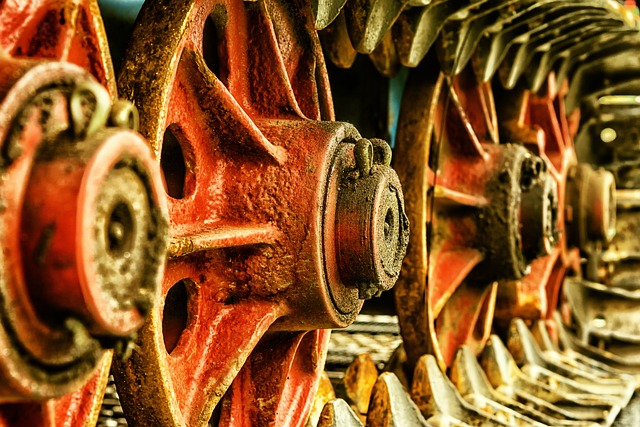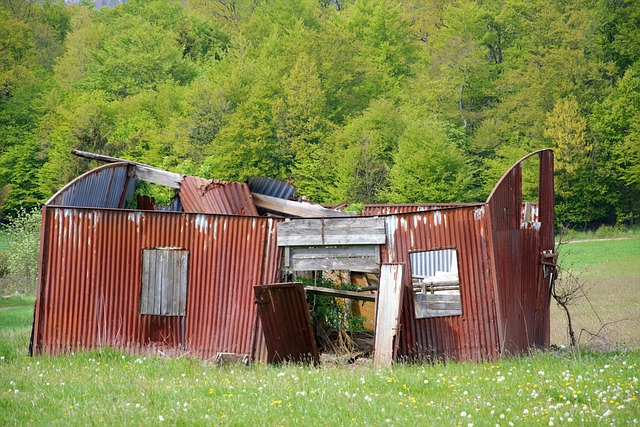The text delves into the common causes of pipe corrosion, highlighting key factors like water quality (high chlorine or chemicals), lack of coatings, and exposure to corrosive substances. It emphasizes that early signs like discolored patches, flaking paint, and odors indicate potential severe water damage. By understanding these causes – including moisture, poor ventilation, and aging pipes – homeowners can implement preventive measures such as improved ventilation, clean drains, protective coatings, and corrosion-resistant materials to avoid costly repairs and extend plumbing system lifespan, especially in high-humidity or corrosive water areas.
Are your pipes rusting faster than you can keep up with? Understanding the real reasons behind pipe corrosion is the first step to maintaining a functional plumbing system. This comprehensive guide dives into the common causes of pipe corrosion, helping you identify potential issues early on. By recognizing signs of rust and implementing effective prevention and repair solutions, you’ll extend the lifespan of your pipes and avoid costly replacements. Let’s explore the science behind this pervasive problem and equip ourselves with practical knowledge.
- Understanding Pipe Corrosion: The Common Causes
- Identifying Signs of Rust and Corrosion in Your Pipes
- Effective Solutions to Prevent and Repair Pipe Corrosion
Understanding Pipe Corrosion: The Common Causes

Understanding Pipe Corrosion: The Common Causes
Pipe corrosion is a common issue that can lead to serious plumbing problems. The primary reason behind this deterioration is metal oxidation, which occurs when pipes come into contact with water and oxygen. This process causes the metal to weaken over time, leading to rust buildup and potential leaks or breaks. The most prevalent culprits contributing to pipe corrosion are water quality, inadequate pipe coatings, and exposure to corrosive substances.
Water containing high levels of chlorine or other chemicals can accelerate corrosion. Additionally, if pipes aren’t properly coated or lined, they become more susceptible to damage. Corrosive substances in the water supply, such as acid or salt, can also play a significant role. Identifying these common causes is essential for implementing effective prevention strategies and ensuring the longevity of your plumbing system.
Identifying Signs of Rust and Corrosion in Your Pipes

Many homeowners may dismiss rust as a mere cosmetic issue, but it’s crucial to understand that pipe corrosion can lead to severe water damage and structural problems over time. Identifying signs of rust early is essential in mitigating potential hazards and costly repairs. Keep an eye out for discolored patches or orange/red stains on the exterior pipes, especially in damp areas. If you notice flaking or peeling paint, it could indicate underlying corrosion. Sometimes, pipes may emit a strange odor, akin to that of rusty metal, which is another telltale sign.
The common causes of pipe corrosion include prolonged exposure to moisture, poor ventilation, and incorrect piping materials. Metal pipes, if not properly coated or treated, are particularly susceptible to rusting due to their inherent reactivity with water and oxygen. In areas with corrosive water sources or high humidity, the issue becomes even more prevalent. Understanding these indicators and causes is the first step towards preventing further damage and ensuring your plumbing system’s longevity.
Effective Solutions to Prevent and Repair Pipe Corrosion

Pipe corrosion, often attributed to rust, is a prevalent issue stemming from various common causes. Understanding these causes is key to implementing effective solutions for prevention and repair. The primary culprits include exposure to corrosive substances like salt water or acidic chemicals, inadequate drainage leading to moisture buildup, and aging pipes that weaken over time.
To combat pipe corrosion, consider several practical strategies. First, maintain proper ventilation in confined spaces to prevent moisture accumulation. Regularly inspect and clean drains to ensure smooth water flow. For existing corrosion, apply special coatings designed to shield metal surfaces from damage. In severe cases, replacing damaged sections of piping with corrosion-resistant materials may be necessary.
Rusty pipes are not just an eyesore; they can lead to significant water damage and decrease your home’s value. Understanding the common causes of pipe corrosion, such as exposure to acidic or alkaline substances, high moisture levels, and aging pipelines, is the first step in prevention. Regular maintenance, including inspecting for signs of rust and corrosion, flushing water systems, and using protective coatings, can significantly extend the life of your pipes. By implementing these effective solutions, you can mitigate the issue before it causes major problems, ensuring a reliable plumbing system for years to come. Remember, addressing pipe corrosion proactively is key to avoiding costly repairs and preserving your home’s integrity.
